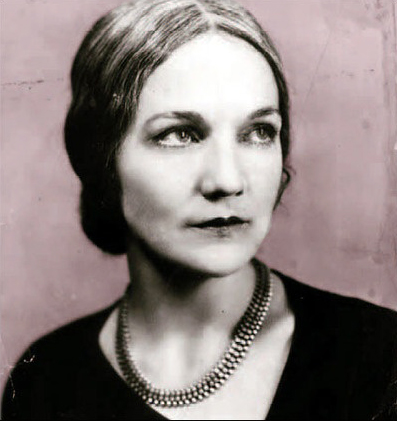
At the time of this letter’s writing, Porter had just returned to the US from a trip through Mexico, where she was trying to initiate projects in an effort to improve women’s health and education. Around this time, she began work on her first and only novel Ship of Fools, which was not to be published for another two decades. On writing the book, Porter said that “[Women are] brought up with the notion of feminine chastity and inaccessibility, yet with the curious idea of feminine availability in all spiritual ways, and in giving service to anyone who demands it. And I suppose that’s why it has taken me twenty years to write this novel; it’s been interrupted by just anyone who could jimmy his way into my life.” Below, she addresses Donald Elder, an editor at Doubleday who shared Porter’s social concerns.
Yaddo
Saratoga Springs, New York
May 6 1941
Dear really dear Don:
You endear yourself further to me every time you take typewriter in hand and make me a present of your view of things. I wish I could publish this letter: I wish I could send it around to people, or read it to the student body of this Republic… There is only one danger, a serious one. If the Big Stick Foundation for Commercial Seizure of South America ever got wind of your notions, you’d be snatched straight off your strategic job. You are strictly not the fellow they want in this business. They wouldn’t want me, either; so let’s keep vastly quiet and get in a few hot licks before they catch onto us…
As to the back-slapping rapacity of our businessmen vis-a-vis the dark inferior peoples. In God’s truth I still prefer them to the Nazis sitting on our elbows all over South America, though it wouldn’t be anything new, as they’ve been filtering in there like certain germs through porcelain, for a great while now… I definitely prefer any evil we have in our life here to the kind of evil the Germans bring in on their bootsoles… If it comes to a showdown, I still think we have certain advantages: and I am all for knowing what they are and using them in this war. There are a great number of things wrong in this country, and it is the fault of all of us: if we don’t…fight the things we know are damning this place, then we are really in guilty complicity with them….
This country is especially charming to me: Not too picturesque, not too dull, a good fair climate with four seasons, fine trees, good soil, good water, and a choice of plain solid old houses to work over… What more? My Aunt Anne and Uncle Gabriel used to come here—in the eighties—to the United States Hotel, for the races. My six times removed name-grandfather—Col. Andrew Porter—fought with some gallantry right over here on the Saratoga battlefield. My place, South Hill, is about two miles from it. I consider these two items quite enough family tie…
Monroe and I were talking about something else. Everybody does a faint little piece on Sor Juana Inez de la Cruz, first first-rank poet in America, a Mexican nun who was a famous wit and beauty, who died at about forty nursing plague victims… She too has a strange history, and she really was a poet. I have translated several of her poems, and know a good deal about her life from documents I have examined… We thought perhaps a short story about her with examples of her poetry and two or three of her fantastically beautiful portraits might help the Good Cause… After all, she was the only great poet America produced until Emily Dickinson… However, this is for the future, and by future I would mean 1942, late… If you wanted a quicker job, I could translate Amado Nervo’s Life of Sor Juana, though I do think it a little sentimentalized and incomplete… But this is only a suggestion… First, El Periquillo Sarniento… Literally, the Itching Parrot. Are you keeping that title? It strikes me as having something of its own, and I like it…
With my love.
Katherine Anne
From Letters of Katherine Anne Porter. Edited by Isabel Bayley. New York: Atlantic Monthly Press, 1990. pp. 197-198.
FURTHER READING
Hilton Als wrote a biographic essay on Porter for The New Yorker.
The Guardian analyzes Porter’s small but significant body of work.
Read Porter’s The Grave published in The Virginia Quarterly in Spring 1935.


